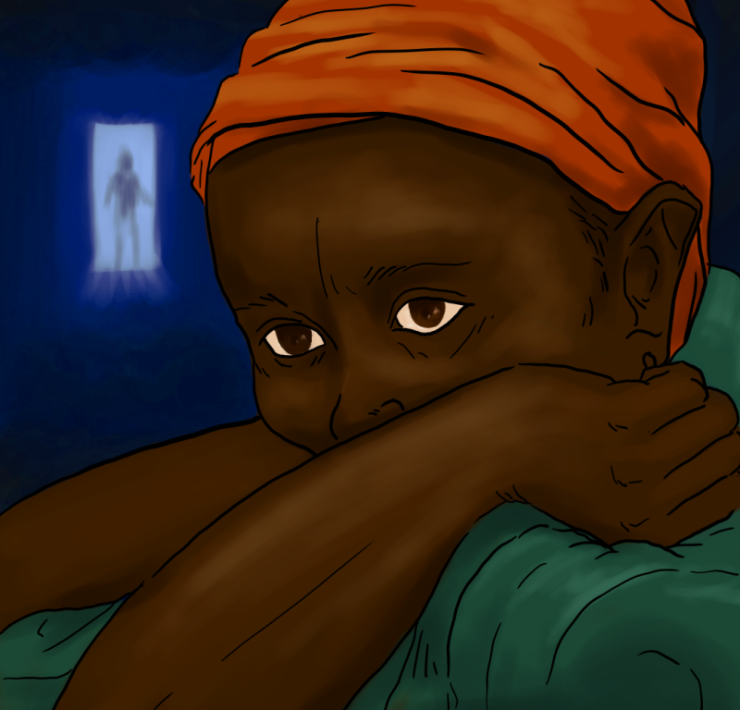The end of the COVID-19 pandemic has, thankfully, seen tourism in Kenya’s coastal resorts pick up. Foreign and domestic tourists are once again flocking to coastal resorts like Mombasa, Diani and Malindi. The bad news is that some of these tourists are returning purely to engage in sex tourism.
On any given day, in the many cafes in Malindi, a town I have called home for more than a decade now, you will find aging foreigners, both male and female, accompanied by young local women or men, many of whom appear to be under age. Surveys show that the largest consumers of sex tourism (including sex with minors) in Kenya are Italian, Swiss and German tourists.
Interestingly, locals also form a large part of those who sexually exploit children. A study by the Dutch NGO Terre des Hommes found that boda boda riders, in particular, use the promise of a free ride to have sex with under-age girls. The study also singled out Malindi as a place where contacts with locals are used to supply children to foreign tourists. Many of these children are sexually exploited in private villas, not hotels – hotels at the coast are now more aware of the practice, and have taken steps to stop the vice, which intervention is commendable. Private villas rented by tourists make it easier to escape scrutiny.
The complicity of locals in enabling foreigners to sexually exploit Kenyan girls and boys is indisputable. It is also a fact that Kenyan men will not hesitate to sexually abuse Kenyan women and girls when they are in a position to do so, as is so often the case in Kenya, where male teachers have been known to have sex with and impregnate their female students.
While the presence of tourists in Malindi and other parts of the coast is desirable – they help build the local economy through creating jobs and spending money on local products – it has also introduced a kind of impunity that has had a negative impact on the local population. The sight of so many local women, girls, men and boys being openly “bought” by foreigners has had an impact on the mindset and aspirations of the younger generation, which is likely to fall into the same trap as there are few other options available to them. A majority of children in Malindi barely make it through secondary school, let alone university.
When I raised the issue of sex tourism in Malindi on Twitter, I got a barrage of replies, some accusing me of being blind to the fact that prostitution exists everywhere, and that I should not condemn people seeking sexual pleasure, especially if the sex is consensual. However, how can one determine whether the sex is consensual when the relationship is so unequal racially and economically? How do the power dynamics between white and Black people play out in the sexual exploitation of the latter?
In many ways, tourism in Kenya’s coastal belt, as in other poor tourism destinations such as Gambia, feels a lot like neocolonialism. Like colonial settlers, rich white tourists coming to these destinations not only feel entitled to the land but to its women and men as well.
Unfortunately, some local leaders view this form of sexual exploitation as beneficial to the economy.
Not too long ago, a female Senator urged her female constituents to bare their breasts in order to boost tourism. Mombasa Senator Emma Mbura urged Mijikenda women to go topless and wear just a leso around their hips. She argued that foreigners used to come to Kenya’s coastal region specifically to look at naked African breasts, and that the recent practice of covering them has kept them away. She apparently believes that if more coastal women walk around half-naked, foreign tourists will come in droves to Kenya’s beach resorts.
Meanwhile, local leaders look the other way because keeping these kinds of tourists coming benefits the local economy, even if it is at the expense of the region’s youth. Many organisations have raised the alarm about the sexual exploitation of women and children at the coast, but their warnings have had little impact because there is little will on the part of the authorities to address the issue. It appears that the Kenyan government and leaders view people living at the coast as a tourist attraction – as mere flesh to be exploited at the altar of the almighty tourist dollar.
Author
-

Rasna Warah is a Kenyan writer and journalist with over two decades of experience as an editor, writer and communications specialist. She wrote a weekly op-ed column for the Daily Nation, Kenya’s leading newspaper, for many years, and has contributed to various regional and international publications, including, the UK’s Guardian, Africa is a Country, The East African, The Mail and Guardian, The Elephant, and Kwani? She has worked as an editor and writer at the United Nations Human Settlements Programme (UN-Habitat) and has published two books on Somalia: Mogadishu Then and Now (2012) and War Crimes (2016). Her first book, Triple Heritage (1998), explored the history of South Asians in East Africa. Her latest book, Lords of Impunity (2022), examines the failures and internal contradictions of the United Nations and what can be done to transform this global body. She holds a Master’s degree in Communication for Development from Malmö University in Sweden and a Bachelor of Science Degree in Psychology and Women’s Studies from Suffolk University in Boston, USA. She is based in Nairobi, Kenya.
Rasna Warah is a Kenyan writer and journalist with over two decades of experience as an editor, writer and communications specialist. She wrote a weekly op-ed column for the Daily Nation, Kenya’s leading newspaper, for many years, and has contributed to various regional and international publications, including, the UK’s Guardian, Africa is a Country, The East African, The Mail and Guardian, The Elephant, and Kwani? She has worked as an editor and writer at the United Nations Human Settlements Programme (UN-Habitat) and has published two books on Somalia: Mogadishu Then and Now (2012) and War Crimes (2016). Her first book, Triple Heritage (1998), explored the history of South Asians in East Africa. Her latest book, Lords of Impunity (2022), examines the failures and internal contradictions of the United Nations and what can be done to transform this global body. She holds a Master’s degree in Communication for Development from Malmö University in Sweden and a Bachelor of Science Degree in Psychology and Women’s Studies from Suffolk University in Boston, USA. She is based in Nairobi, Kenya.








